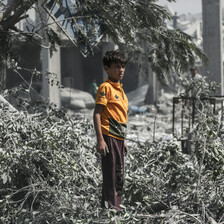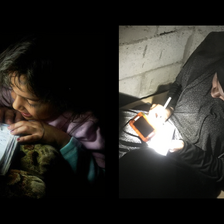The Electronic Intifada 16 May 2025
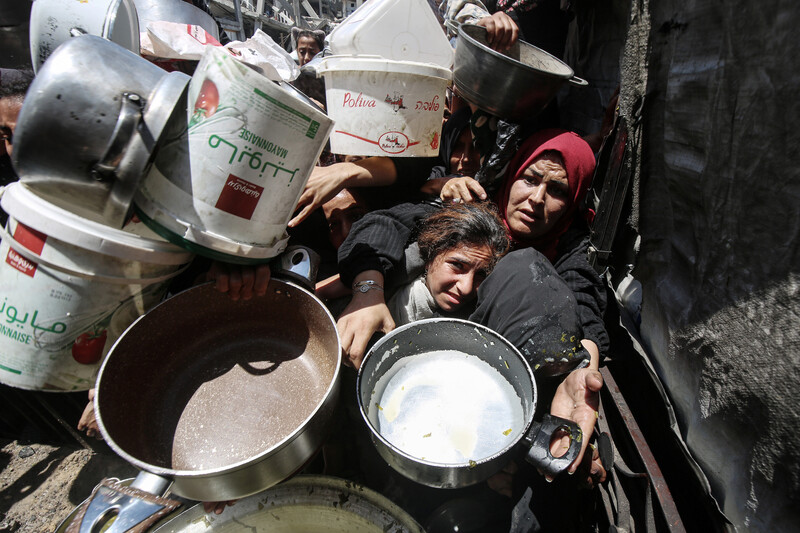
Palestinians queue to receive food aid at a charity kitchen in Beit Lahiya, northern Gaza, on 8 May.
APA imagesIn times of war, the destruction of homes, infrastructure and economies is typically well-documented and relatively measurable.
An overlooked yet devastating aspect of the war in Gaza is the slow, insidious impact of food insecurity on the human body. This crisis has reached catastrophic levels, pushing families to the brink of death.
I’ve lost six kilograms in the past six weeks, adding to the ten I had already lost since the war began. And yet, I consider myself lucky. I still manage to have one meal a day (usually rice and salad), while countless others now go without even that. Some items in the salad, like parsley or onion, my father has had to grow himself, as fresh produce has become nearly impossible to find or afford.
I’m a healthy man in my 30s. What about the injured, the sick, the elderly, children, pregnant women and nursing mothers who lack the privilege of a single daily meal?
If this isn’t starvation, what is it?
Silent crisis
I lived through the starvation crisis in Gaza at the beginning of 2024 and witnessed the profound weight loss and suffering of the population. This experience compelled my colleagues and me to document and study this phenomenon scientifically.
I am one of four researchers who undertook a study in April 2024, later published in the Journal of Health, Population and Nutrition, that reveals the shocking extent of malnutrition and weight loss among people in northern Gaza – a silent crisis that demands urgent global intervention.
Nearly all participants in our study (98.4 percent) experienced weight loss, with an average decline of 18.72 kg, or around 41 pounds, roughly 22 percent of their pre-war body weight.
With traditional staples like wheat flour, rice and vegetables virtually unavailable, families were forced to rely on wild plants and animal feed for survival. This drastic shift in diet has led to widespread health complications, including diarrhea, constipation and abdominal pain, conditions linked to both poor nutritional value and contamination of available food sources.
Extreme shortages
Families are once again suffering significant and harmful weight loss due to extreme shortages of food and clean water.
Israel’s blockade and relentless military assaults have systematically destroyed the local food supply chain. Agricultural land is destroyed, supermarkets are empty and humanitarian aid is either insufficient or obstructed.
This is not merely a consequence of war – it is the deliberate weaponization of hunger to break the will of an already exhausted, vulnerable and besieged population.
The world has seen dramatic images of entire neighborhoods reduced to uninhabitable expanses of rubble, and streams of men, women and children fleeing their neighborhoods with whatever they can carry. Yet the slow, grinding suffering of starvation is less of a spectacle and often escapes global attention.
International organizations have issued statements, but words are not enough. The Israeli blockade choking off Gaza’s access to food and medicine remains firmly in place. Humanitarian organizations struggle to deliver aid, and appeals for intervention are met with political roadblocks rather than urgent action.
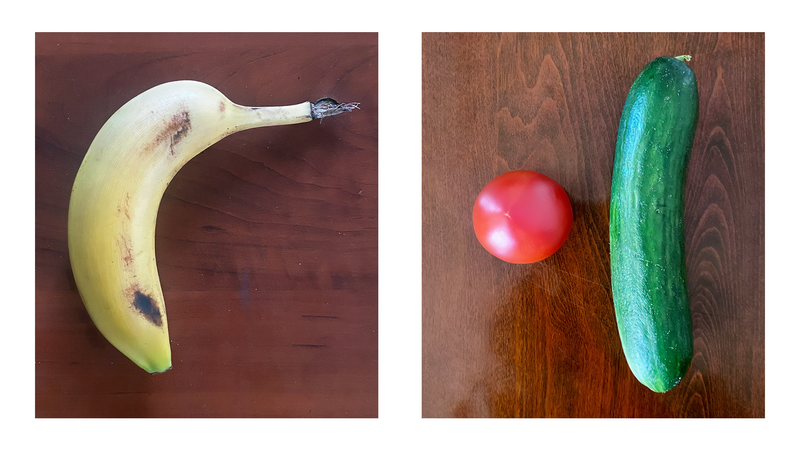
A cucumber, tomato, banana, orange and pear: these are foods I tasted for the first time in months with the arrival of aid trucks during the now collapsed truce that began in January. In Gaza today, such items are either completely unavailable or sold at prices so inflated that most families simply cannot afford them.
I never thought of eggs or apples as unattainable luxuries, yet here I am, and here we are.
I love peaches. I whisper this to myself so I don’t forget, though I haven’t seen, touched or tasted one in a year and a half. But ultimately, my dream isn’t to eat a peach. My dream is to live in freedom and with dignity.
While these days my stomach may hunger for bread, what I truly wish to taste is liberation. I have documented the effects of starvation in Gaza in several projects. But beyond the physical hunger, it’s the yearning for freedom that consumes me the most.
I took photos of the food I ate during the truce for posterity – for myself first, and for my children and Palestine’s future generations – to remind us that true hunger is not just of the body, but of the spirit longing for freedom. Even if all we have to eat are tree leaves, we will not be starved of our dignity.
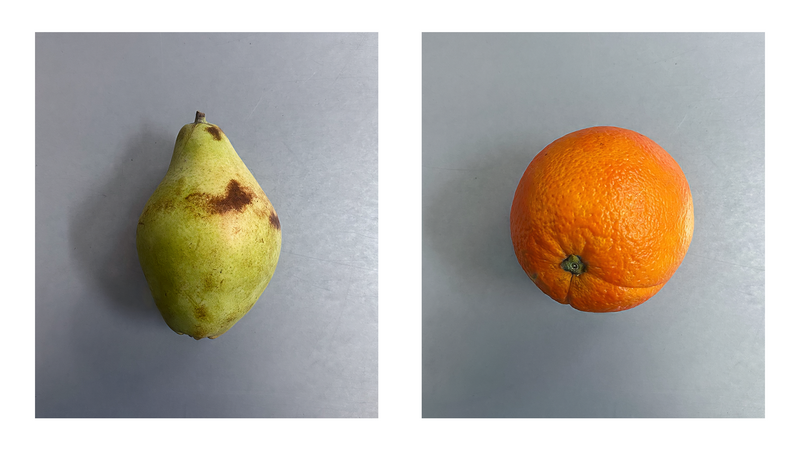
Food security should never be a privilege; it is a basic human right. International laws and treaties exist to protect civilians in wartime. Yet, in Gaza, these laws are flouted brazenly.
Gaza’s food crisis is not an abstract policy debate; it is a humanitarian emergency that demands urgent action. The international community – particularly those in positions of power – must move beyond empty rhetoric and take material action to alleviate the suffering of two million people trapped in a vicious cycle of violence, starvation and humiliation.
History will judge how people respond to this crisis. Many will be remembered as bystanders who watched while an entire population starved. Others will be recognized as humans who demanded justice and dignity for all.
For the former, history may run a full circle, and the dangerous precedents set in Gaza may, God forbid, become normalized in modern warfare, and eventually come to haunt those who are now complicit.
Either way, for the people of Gaza, time is running out.
Asem Alnabih is an engineer and PhD researcher, currently based in Gaza City. He serves as the spokesperson for Gaza Municipality and has written for many platforms in both Arabic and English.
